Search
Search Results
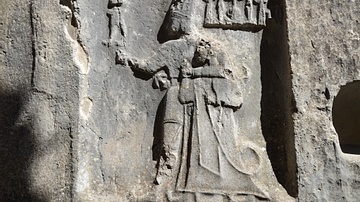
Image
Hittite relief of the God Sharruma and King Tudhaliya
East wall of Chamber B of the Yazilikaya Hittite Rock Sanctuary near Hattusa (13th century BCE) depicting in a niche the God Sharruma (the Hurrian Mountain God and son of the Thunder God Teshub) embracing Great King Tudhaliya IV (r. c. 1237–1209...
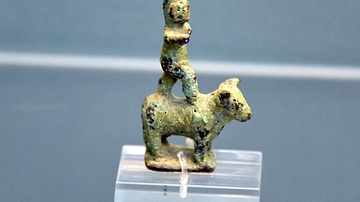
Image
Figure of the Hittite God Teshub
The storm-god Teshub wears a tall headdress and stands on the back of a bull. From modern-day Turkey. Bronze figurine. Hittite period, 1600-1200 BCE. (The British Museum, London).
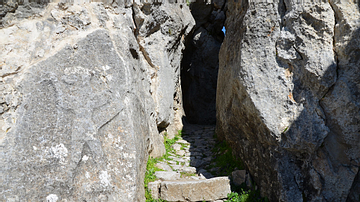
Image
Hittite relief of a Winged Lion-Headed Demon at Yazilikaya
Entrance to Chamber B of the Yazilikaya Hittite Rock Sanctuary near Hattusa (13th century BCE) with a relief of a winged, lion-headed demon.
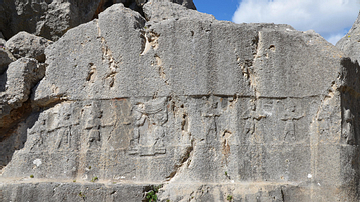
Image
Hittite Rock Relief at Yazilikaya
Rock relief in Chamber A of the Yazilikaya Hittite Sanctuary (13th century BCE) depicting two bull-headed men standing between male gods on the hieroglyphic symbol of the earth, and supporting the sky.
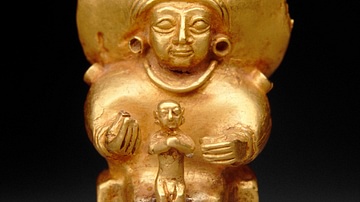
Definition
Sauska
Sauska (also known as Shaushka, Sausga, and Anzili) was the Hurrian-Hittite goddess of fertility, war, and healing. She was worshipped throughout the region known as Hanigalbat (present day Iraq, Syria, and Turkey) from the time of the Hurrians...

Image
Hittite Sphinx
This basalt Hittite sphinx was placed at the entrance into the palace number three at Sam'al (modern-day Sinjerli, Gaziantep, Turkey). Late Hittite period, 8th century BCE. (Istanbul Archaeological Museums/Ancient Orient Museum, Istanbul...
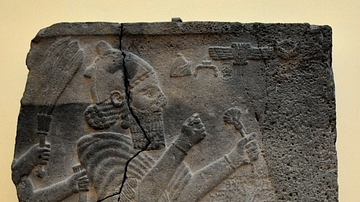
Image
Hittite King Barrekub
In this basalt wall relief, King Barrekub prays in front of divine symbols. The Hittite hieroglyphic inscriptions talk about the construction of a new palace. Sam'al (modern-day Sinjerli, Gaziantep, Turkey). Late Hittite period, 8th century...
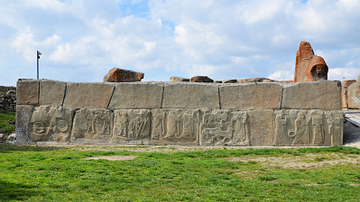
Image
Hittite Orthostates at Alacahöyük
Copies of Hittite orthostates at Alacahöyük (the site of a Neolithic and Hittite settlement in central Turkey) which decorated the external facade of the Sphinx Gate, the south entrance to the city. They depict a religious ceremony in honour...
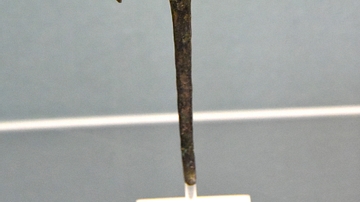
Image
Hittite Foundation Figurine
This bronze figurine was shaped like Mesopotamian foundation figurines. The figure wears the tall headdress of a Hittite god. From South-Eastern Anatolia, in modern-day Turkey. Old Hittite period, c. 1600 BCE. (The British Museum, London).
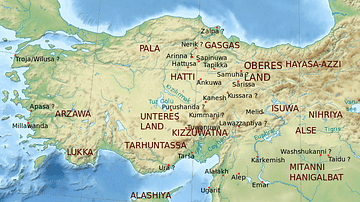
Definition
Hayasa-Azzi
The Hayasa-Azzi were an indigenous Bronze Age tribal confederation which flourished on the plateau of ancient Armenia and eastern Anatolia between c. 1500 and c. 1200 BCE. Although the historical record is impoverished and disputed regarding...